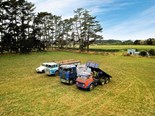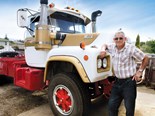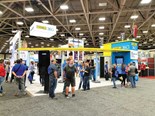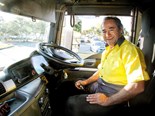Business profile: Western Aggregates and Soil
Deals on Wheels visited the Western Aggregates and Soil facility to speak to company owner Jeff White about the operation he heads
Although the company was originally formed in 2007, Jeff says he purchased the operation about five years ago, in which time, the company has grown from a staff of three to 10.
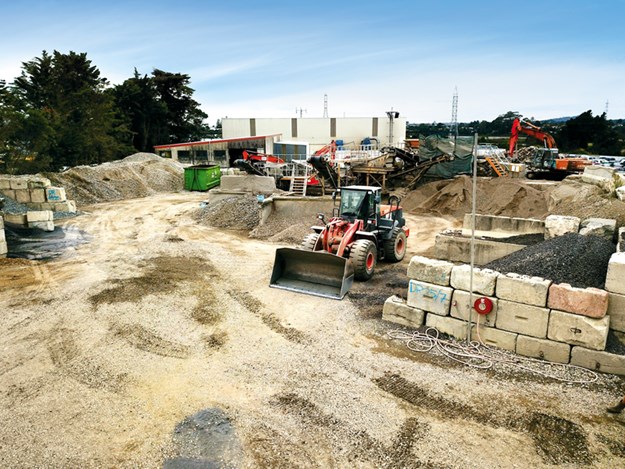 |
|
Western Aggregates yard is centrally located in Span Farm Industrial Estate
|
Western Aggregates, or ‘Western Ag’ as it’s commonly referred to, is a licensed waste management facility that supplies aggregate product to the general public right up to large civil construction entities.
But more than that, Jeff says his operation is a hard-fill/spoil transfer business where clients are charged a fee to dispose of product that is suitable for recycling.
He emphasises that the Western Aggregates is not a tip and that any product received is accepted at the total discretion of the site manager.
While it’s outside the scope of this article to provide a comprehensive rundown of tipping fees and of what is and what is not accepted, as a general rule of thumb, a single-axle car trailer load of concrete would cost between $30 and $50 to tip, while a six-wheeler load would range between $80 and $160, dependent on the size of concrete pieces delivered.
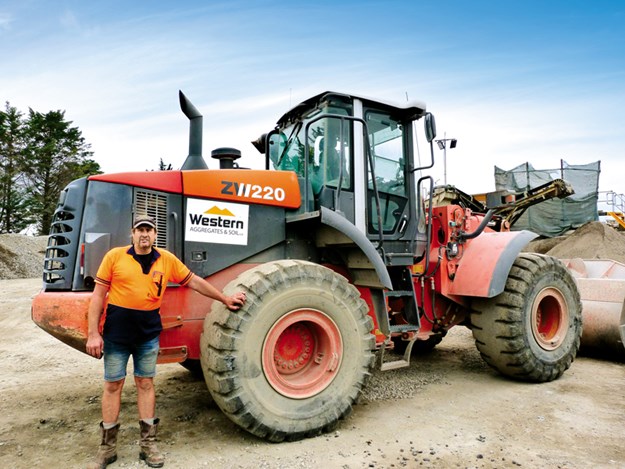 |
|
Owner Jeff White with his Hitachi ZW220 loader
|
The three sizes are specified as follows:
- Ready to crush
- Oversized and/or reinforced
- Heavy or unclean
There is a minimum charge of $20 regardless of the size and it would be best to call office manager Josie for specific details before visiting them.
All concrete crushing is carried out on site. Jeff says they accept concrete of every description, from "mum and dad’s pathway" to power poles and roadway barriers.
The company operates a Goodwin Barsby 24x15 jaw crusher, which is set up to crush the concrete into four products, namely AP65, AP40, AP20, and a Drainage 40/20.
As a part of their spoil transfer operation, Western Ag stocks quarry products in GAP7, 20, 40, and 65 along with a drainage 40/20 quarried bluestone; they also supply scoria SAP7, 25/7, and 50/20.
Soil tipping is also a part of the operation but is a seasonal activity carried out only during the summer months. No rubbish or organic waste is accepted and wet loads are charged at 30% extra.
Cost-effectiveness
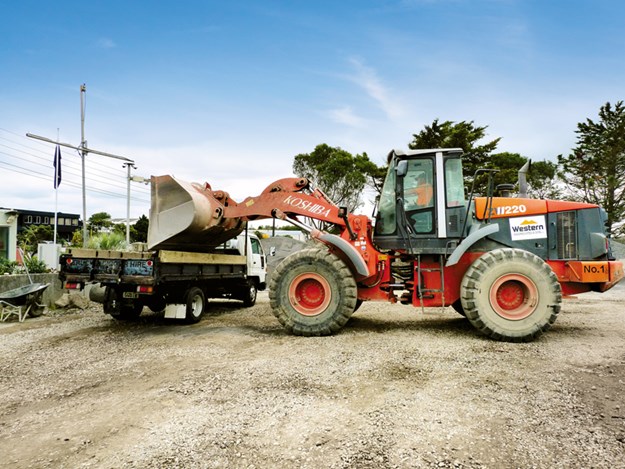 |
|
Small, medium and large volumes are all catered for
|
Due to the difference in weight between recycled concrete and quarried aggregate, Jeff says his products can be a cost-effective alternative, citing that a customer will receive more volume of recycled AP65 than quarried GAP65.
Jeff says that although recycled concrete is generally accepted as being a viable alternative to quarried basecourse for driveways, drainage, footpaths, and the like, because of the varied MPA ratings of the different types of raw concrete that comes into his yard, it’s not always easy to get engineers’ approval for use in some construction applications.
The process
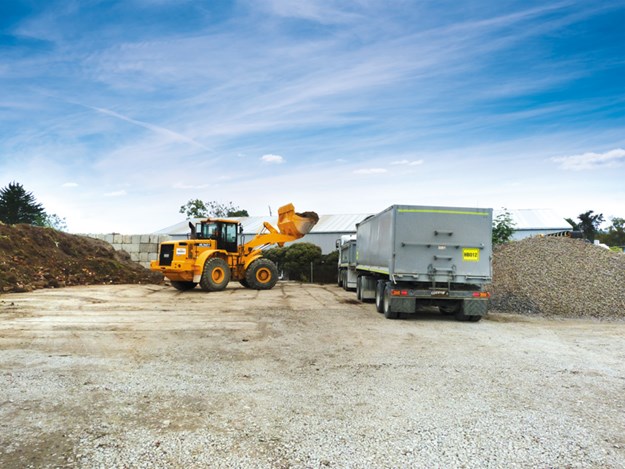 |
|
Another load of soil ready to leave the yard
|
Talking about the process, Jeff says, "Let’s say, for instance, you have a truckload of concrete to deliver, firstly, the load is inspected for contaminants before being graded into the three previously-mentioned sizes: ‘ready to crush’ 300mm x 300mm x100mm and ‘oversize’ about 600 to one-metre square x 150mm thick with reinforcing.
The third category is classed as ‘heavy oversize’, which applies to footings etc. "Power poles, roading barriers, and the like are assessed on visual inspection and priced accordingly.
"Once the grading process has been completed and separated into appropriate piles, the product can then be loaded into the crusher’s hopper where any steel reinforcing is removed from the mix by powerful electro magnets, leaving the remaining concrete to be processed into the required size of aggregate.
"Obviously, larger items such as roading barriers need to be broken down to manageable sizes and this is done with a range of attachments fitted to the company’s four 20-tonne Hitachi excavators.
"We have a range of pulverisers and 20-tonne rock breakers, which allow us to easily handle almost anything that comes into our yard."
While there wasn’t enough time available for us to check out the crushing side of the business, it was a completely different story as far as the supply side was concerned, as there was a steady stream of all manner of vehicles, from utes with trailers to truck and trailer units, lining up to be loaded.
Machines for the job
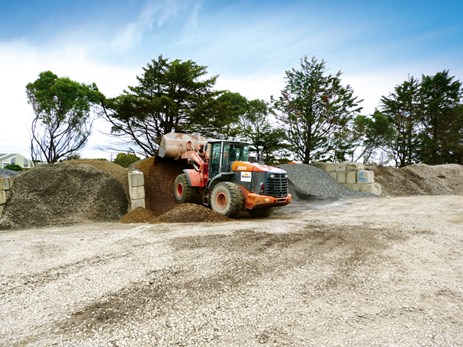 |
|
3.1 cubic metres of product being moved in one bucketload
|
The company’s two loaders plus one spare are constantly kept busy filling bins, feeding hoppers and loading trucks and trailers.
Jeff says they run two Hitachi machines, an LX120 and a ZW220—the lead machine with a 3.1 cubic metre bucket capable of lifting around five tonnes. They also have a Hyundai HL760 with a similar-sized bucket.
The two trucks in the fleet are a four-wheeler and a six-wheeler used generally for delivering product to customers who don’t have their own truck but are often
used to collect raw material when required.
For more information, visit westernaggregates.co.nz.
Keep up to date in the industry by signing up to Deals on Wheels' free newsletter or liking us on Facebook.


.jpg)



.jpg)


.jpg)

